HMS Spiteful was a third-batch S-class submarine built for the Royal Navy during the Second World War.
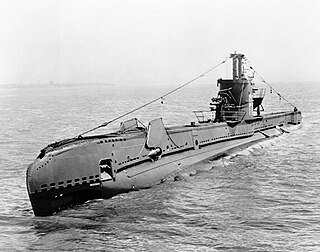
HMS Stonehenge was an S-class submarine of the third batch built for the Royal Navy during World War II. Completed in 1943, she made her initial patrol off Norway and was then transferred to the Far East, where she conducted two war patrols, during which she sank two Japanese ships. On her second patrol, Stonehenge disappeared with all hands and was declared overdue on 20 March 1944. The most probable cause of her sinking is that she hit a mine, but her wreck has never been found.

HMS Stratagem was a third-batch S-class submarine built for the Royal Navy during World War II. Completed in 1943, she made her first war patrol off Norway before she was sent to the Far East, where she conducted three war patrols. On her second, she shelled installations on a Japanese-held island. Her only success came on her last patrol, when she torpedoed and sank a Japanese oil tanker. Soon after, she was spotted by aircraft and depth charged by a destroyer. She was forced to surface, and was scuttled to prevent her capture. Ten crew members escaped the sinking submarine and were taken prisoner, of whom only three survived the war.

HMS Saga was a S-class submarine of the third batch built for the Royal Navy during World War II. She survived the war and was sold to Portugal.
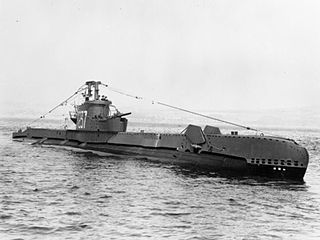
HMS Scythian was a S-class submarine of the third batch built for the Royal Navy during World War II. She survived the war and was sold for scrap in 1960.

HMS Sea Scout was a S-class submarine of the third batch built for the Royal Navy during World War II. She survived the war and was sold for scrap in 1965.
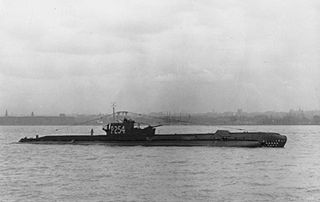
HMS Selene was a S-class submarine of the third batch built for the Royal Navy during World War II. She survived the war and was sold for scrap in 1961.
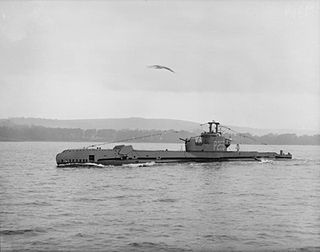
HMS Seneschal was a S-class submarine of the third batch built for the Royal Navy during World War II. She survived the war and was sold for scrap in 1965.
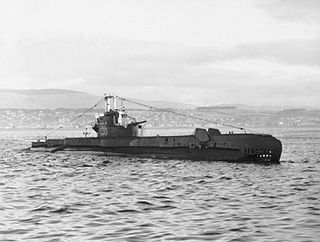
HMS Sentinel was a S-class submarine of the third batch built for the Royal Navy during World War II. She was not completed until after the war and was sold for scrap in 1962.

HMS Shakespeare was an S-class submarine built for the Royal Navy during the Second World War, and part of the Third Group built of that class. She was built by Vickers-Armstrongs and launched on 8 December 1941.
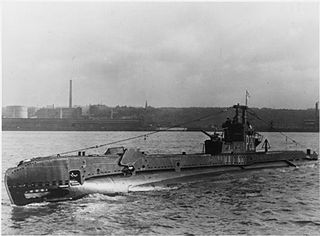
HMS Solent was a S-class submarine built by Cammell Laird and launched on 8 June 1944 of the third batch built for the Royal Navy during World War II. She spent most of her career in the Pacific Far East, often in company with her sister ship, HMS Sleuth. Together they sank fifteen Japanese sailing vessels and the Japanese auxiliary minesweeper Wa 3. She survived the war and was sold for scrap in 1961.
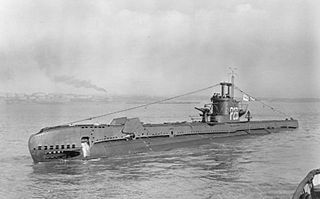
HMS Surf was a S-class submarine of the third batch built for the Royal Navy during World War II. She survived the war and was scrapped in 1948.
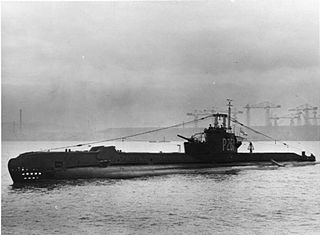
HMS Sleuth was a S-class submarine of the third batch built for the Royal Navy during World War II. She survived the war and was sold for scrap in 1958.

HMS Spur was a S-class submarine of the third batch built for the Royal Navy during World War II. She survived the war and was sold to Portugal in 1948.
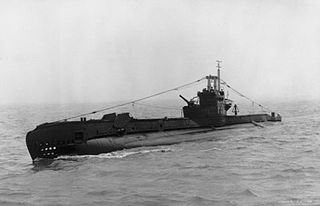
HMS Spearhead was a S-class submarine of the third batch built for the Royal Navy during World War II. She survived the war and was sold to Portugal. She was scrapped in 1967.

HMS Supreme was a S-class submarine of the third batch built for the Royal Navy during World War II. She survived the war and was sold for scrap in 1950.

HMS Spark was a S-class submarine of the third batch built for the Royal Navy during World War II. She survived the war and was scrapped in 1950.

HMS Stoic was a S-class submarine of the third batch built for the Royal Navy during World War II. She survived the war and was scrapped in 1950.
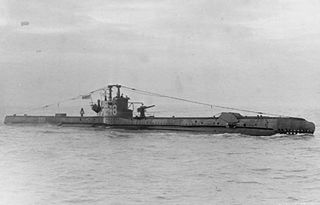
HMS Sturdy was a S-class submarine of the third batch built for the Royal Navy during World War II. She survived the war and was scrapped in 1958.
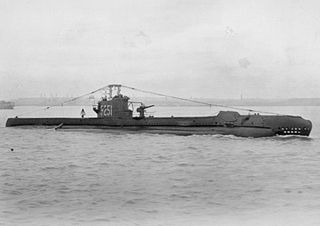
HMS Subtle was a S-class submarine of the third batch built for the Royal Navy during World War II. She survived the war and was scrapped in 1959.




















